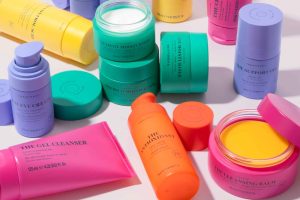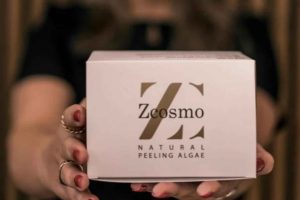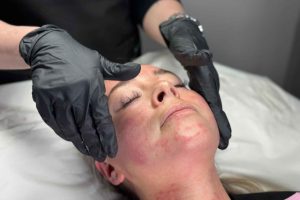In the world of advanced skin rejuvenation, two injectable treatments are leading the way in delivering hydrated, glowing, and healthier-looking skin: Hyaluronic Acid (HA) Skin Boosters and Polynucleotide (PN) Injections.
Although they both work to improve skin quality, their mechanisms of action, results, and long-term effects are completely different. Understanding these differences is key to choosing the right treatment based on your skin goals, concerns, and age.
💧 What Are Skin Boosters?
Skin boosters are injectable treatments containing non-crosslinked hyaluronic acid, a powerful humectant that naturally occurs in the skin and attracts water to maintain hydration and plumpness.
Unlike traditional HA fillers that add volume and structure, skin boosters don’t alter facial shape. Instead, they are injected superficially across the face (or neck, hands, décolletage) to improve hydration, texture, and elasticity.
🧪 How They Work:
HA skin boosters deliver deep, long-lasting hydration by drawing moisture into the dermis. This plumps fine lines, smooths rough texture, and enhances skin’s glow.
✅ Pros of Skin Boosters:
- Immediate hydration and glow
- Improves elasticity and skin quality
- Safe, well-tolerated with minimal downtime
- Suitable for younger and older skin
- Great for first-time injectable clients
- Can be used preventatively from mid-20s+
❌ Cons of Skin Boosters:
- Results are temporary (approx. 6 months)
- Multiple sessions needed for best outcome
- Doesn’t stimulate long-term collagen production
- Not ideal for severe ageing, sun damage, or acne scarring

🧬 What Are Polynucleotide Injections?
Polynucleotides (PN) are bio-revitalising skin injectables derived from purified salmon or trout DNA fragments. They’re a next-generation regenerative treatment that work by stimulating the skin’s natural repair processes, promoting cell renewal, fibroblast activation, and collagen and elastin synthesis.
🧪 How They Work:
When injected into the dermis, polynucleotides reduce oxidative stress, promote angiogenesis (formation of new blood vessels), and accelerate tissue regeneration. They are classed as biostimulators, meaning they improve the function of skin rather than just masking the signs of ageing.
✅ Pros of Polynucleotides:
- Stimulate fibroblasts, collagen, and elastin
- Improve skin texture, tone, firmness, and healing
- Ideal for acne scarring, sun damage, rosacea, and sensitive skin
- Long-term skin regeneration with cumulative results
- Useful for delicate under-eye area
- Safe for all skin types and tones
- Low allergenic risk despite being fish-based
❌ Cons of Polynucleotides:
- Slower onset of results (visible after 3–4 weeks)
- Course of 2–4 treatments required
- Mild swelling, lumps, or bruising may occur
- Not a “quick fix” for event-ready glow
- Not designed to volumise or deeply hydrate like HA
💡 Who Are These Treatments For?
Skin Boosters Are Best For:
- Clients in their 20s to 40s wanting a fresh, dewy glow
- First-time injectable clients or needle-phobes
- Dehydrated or dull skin
- Clients looking for a “glass skin” effect
- Maintenance of skin quality in between other treatments
Polynucleotides Are Best For:
- Clients in their 30s–60s with skin ageing, thinning, or sun damage
- Sensitive skin, rosacea, or post-acne inflammation
- Clients looking for healing and long-term skin function improvement
- Those wanting a regenerative approach without adding volume
💥 Can They Be Combined?
Yes – and they often should be.
Polynucleotides and skin boosters work synergistically:
- Start with PNs to rebuild and restore
- Follow with skin boosters to maintain hydration and glow
Many advanced skin clinics offer alternating protocols or combination packages spaced 2–4 weeks apart. A tailored consultation will determine the best plan based on your skin’s condition and goals.

🔍 The Science Behind the Glow
Skin Boosters:
- Contain hyaluronic acid in non-crosslinked form
- Attract water into the dermis → hydration and mild tissue support
- Trigger minimal fibroblast activity – mainly cosmetic
Polynucleotides:
- Composed of DNA fragments (nucleotides) with regenerative action
- Bind to cell receptors and activate dermal fibroblasts
- Promote angiogenesis, tissue healing, and collagen remodelling
In clinical studies, polynucleotide treatments have shown significant dermal thickness improvement, increased skin elasticity, and reduced trans-epidermal water loss (TEWL), a sign of a healthier skin barrier.
🧖🏼♀️ Final Thoughts: Which Should You Choose?
If you want a quick moisture surge and radiant skin, skin boosters are a perfect fit.
If you’re looking to rebuild, repair, and restore your skin over time – especially after acne, inflammation, or ageing – then polynucleotides are the smarter, deeper-acting option.
And if you’re serious about skin longevity? Combine both. They’re not competitors, they’re complements.
🗓️ Book a Consultation
At Jacalyn James Clinic, we tailor every injectable skin treatment to your unique skin concerns. Whether you’re curious about skin boosters, polynucleotides, or a combined skin regeneration protocol, we’ll create a treatment plan that delivers results you can feel confident in. Book a consultation today.












